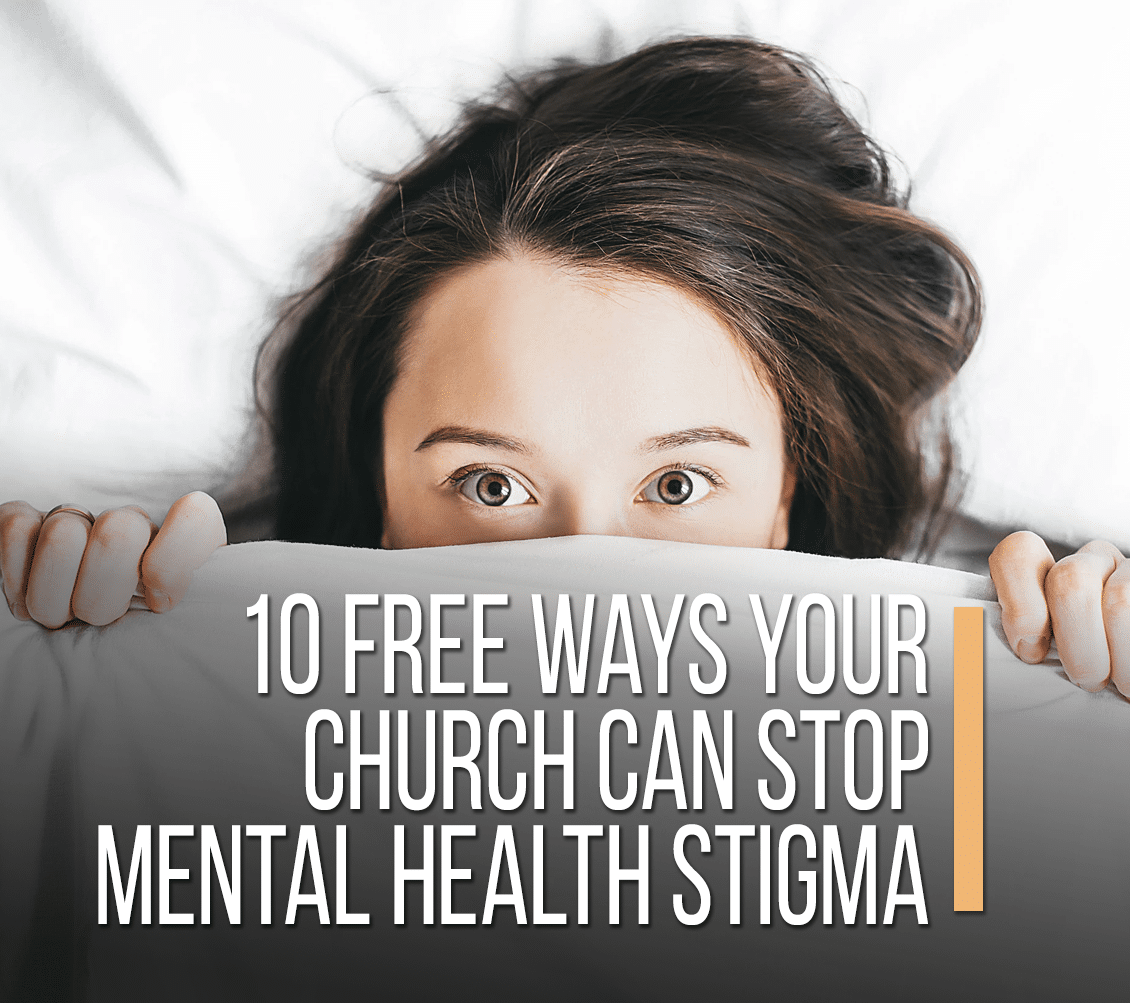Your church has made a revelation and decided that your ministry can make an impact in your community by addressing the issues concerning mental illness in your community. You’ve decided to head up this cause and while putting the pieces together will take time, strategy, and money, you want to get started right away.
Below I’ll be sharing some free ways your church can stop mental health stigma today so that when you do get a budget item, you can already show progress. Certainly, there are cheap options like the Church Mental Health Awareness Cards or social media marketing, but we will look into that in a future article.
This is actually where I myself find me and my church as we start to change the dialogue in our Christian circles and community. As I’ve shared before, my church has already taken steps to break the stigma around mental health for Christians. And if you are like me, you didn’t wait until you got a budget line-item from your church.
- Preach About Mental Health From The Pulpit
This might be the most powerful thing your church can do. In May, my church spent 5 weeks addressing a Biblical implication of mental illness and how the promises of Christ compare. Key Ministry also has a whole list of sermons you could go through as well. - Pray Weekly From The Pulpit
Reducing stigma includes us being able to normalize the conversation. The best way we can do this is to regularly ask people about it and bring it up in conversation. There is no better place than to address mental illness in the prayers of the pastor. We do not need to have long-winded prayers or sharing someone’s personal information. Ask God from the pulpit to comfort those who are depressed, support families who may have a family member struggle with suicide, or heal an individual’s cravings for using drugs. - Create A Volunteer Team
Churches have ministries, whether simply the pastor or volunteers, to go to the hospital when someone is born, someone was in a major accident, or someone is dying. Why can’t we do the same for mental health when someone is admitted to a psychiatric hospital for inpatient treatment? Find some volunteers who have a background in mental health to serve your community. - Meet With Counseling Center Directors In Your County
Get to know all of the counseling centers in your area. You are a pastor, not a counselor. So when something tough comes your way or you have spent more than one session doing some pastoral counseling and they need further help, you need to know who to refer to. We’ve already talked about how to make a referral, but you need to establish a relationship and get to know who you want to refer to that aligns with your ministry. - Host Mental Health Events
Whether a counseling agency wants to put on a continuing education credit training professional counselors are required to attend, train your staff with mental health awareness, or allow them to host a community night, you won’t have to put any money into the event. Just open the doors and build rapport with the community. - Steal Our Church Suicide Prevention Policy
We created a suicide prevention policy designed for you guys to literally copy/paste from our website to your policy and procedure manual. If you don’t have one, go take a look and then steal it from us now. - Join A Suicide Awareness Walk
In your community or a surrounding one, there is probably a suicide awareness walk happening. If you are not sure, ask around, but they happen all of the time. Suicide Awareness is September 10, so you have time for 2020 to help collaborate, get a team together, and go walk. - Offer A Free Family-To-Family Group From NAMI
The National Alliance on Mental Illness has a group called Family-To-Family which offers a 12-week group for family members of an individual who has a mental illness to help educate, support, and empower the family. Your congregation gets empowered, stigma gets cut down, and your church can be a safe place to talk about mental health. - Volunteer Time At The Local NAMI Chapter
NAMI is also a non-profit organization and cannot pay for many things. I’ve heard people recommend volunteering to go do landscaping, deep cleaning, or other tasks that a skeleton team may not have the time to do but your church could take care of in just a couple of hours. - Share Your Story
I’m putting this last because it’s the simpliest and freest of them all, yet is the hardest to do and costs so much in courage and humility. If you can, share your story about mental health. If you are a church leader that struggles with mental illness, open up about it. Nothing fancy, elaborate, or edited. Just your story. (DO NOT share other people’s stories, it’s inappropriate and will create the strongest stigmas possible.)
So that’s where this personal list ends. What other free ideas could you share? And we will definitely be coming out with more free or cheap ways churches can help fight stigma in upcoming posts.
